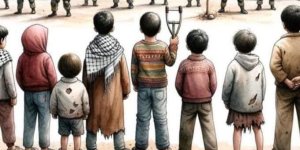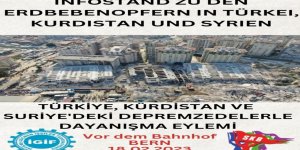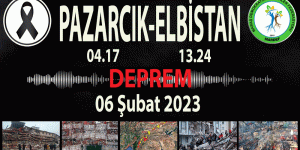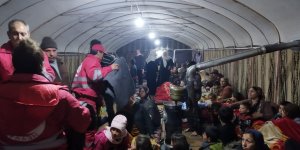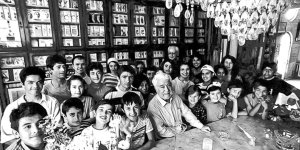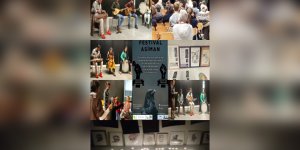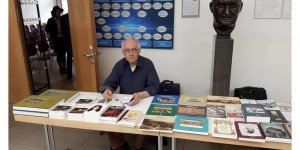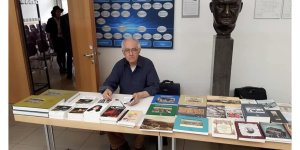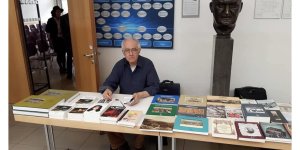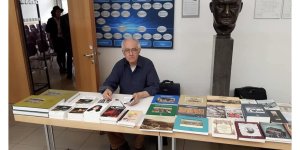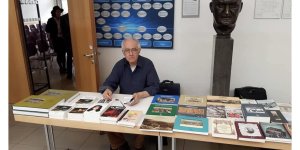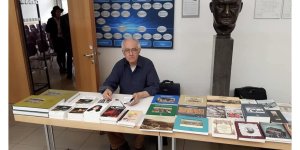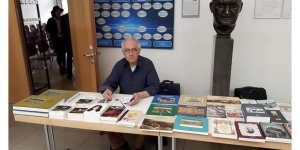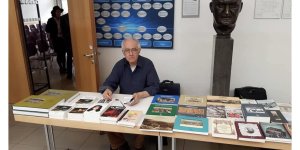FROM RICH CUISINE TO THE SEPTEMBER STORM Süleyman KUŞ
FROM RICH CUISINE TO SEPTEMBER STORM The film "Rich Kitchen" skillfully depicts how racist-fascist organisations are nurtured and organised by capitalists and protected by some official bodies in the period following the "15/16 June Workers' Uprising"(1), in the kitchen of a villa and its veteran cook. When a young university student suffers economic ruin and hears on the radio that whistleblowers will be rewarded, he attempts to base his happiness on the unhappiness of an entire society, without knowing what is going on, in order to marry his fiancée... The villa owner, who fled abroad with his fortune during the workers' uprising and returned with a "trained" German shepherd when martial law was declared, describes his whistleblowing as patriotic, but this path will lead him straight to the "commando camps" of the nationalists. When he returns some time later, even his fiancée, who works as an assistant cook in the kitchen, will not recognise him. As the days pass, it becomes clear how his character has been contaminated, how his head is full of ossified prejudices, how he can attack anything he finds dangerous or not like him (just like the trained German shepherd in the courtyard)... The class struggle forces the young girl, herself a labourer, to choose between the people who are in the right and her fiancé, who has become the wolf dog of injustice... Şener Şen's skilful portrayal of the cook symbolises the traditional half-labourer, half-peasant, very slowly evolving people of that period... All the characters in the film are handled in an exaggerated and realistic manner. This shows with a familiar sense of reality the reflection of people on a mass movement that starts organised, grows from the grassroots and takes the form of an uprising, but lacks adequate leadership and a vision of power... Although the fact that the kitchen is the only "location" throughout the film weakens the film in terms of visual richness and gives it the air of a theatre play, "Rich Kitchen" is an important work that we should evaluate within the scope of socialist cinema... It is one of the rare films that tries to reflect the period with an attitude on the side of the right, honest and just. With "September Storm" we go back ten years later, to the days of martial law and coup d'état. The film begins with black-and-white photographs from those days, which many people nowadays accept without research and questioning, and are content with the pill-news of dubious accuracy presented by the coloured media... Then a mother who resists, a mother who is severely tortured, a father who confesses, a grandfather who has difficulty believing what he has been through, a grandfather who perceives that those in power are the ones really responsible, and a child who is a handful in the midst of many other important details and who is learning to "make honey out of pain"... Within the framework of the pressures a family is subjected to, the film gives sections of the destruction and cruelty of September and leaves clues (the news of the young man hanged at the age of 17, or the forcing of little girls to cover themselves, etc.). Little Metin's sensitivity, overflowing with the joy of life, distinguishing the absurdity in bullying and the comedy in absurdity, adds all the pain experienced to the sensitivity of the audience, which I think is the most important success of the film. Faith and disbelief, love and insensitivity, solidarity and disloyalty, in short, all human emotions suppressed by state oppression and the feeling of doing something despite everything keep fighting throughout the film... A friend of mine said that the word "storm" did not suit the title of the film because it did not really touch on what was going on. Indeed, the emphasis could have been stronger in the sections on detention, neighbourhood and island life. Nevertheless, I think this deficiency does not make the word "storm" in the film's title unnecessary. The child actress plays the most important role in the film and she succeeds in an extraordinary way. Zara, who plays the role of the mother, is generally successful, except for a few minor flaws caused by her first experience. The grandfather (Tarık Akan) and Şerife Teyze (Şerif Sezer) are also very lively characters from life... Aside from the artificiality of the dialogue in one or two scenes and the clumsy ageing at the end of the film (and the way the film ends), September Storm is a well-intentioned, honest work that gives good hopes for the future with its editing, processing and image quality... The most important thing is this: Both films shed light on the pain of our country, which has not been written about or made the subject of artistic productions... Undoubtedly, this little light is not enough to disperse the darkness. How many fascist murders, how many mass massacres did the road from "Rich Kitchen" to "September Storm" pass through? Bloody Sunday, Maraş Massacre, 1 May 1977 Massacre, 16 March Istanbul University Massacre, etc. Would all these sufferings remain mute? What about the millions of people tortured, hundreds of thousands detained and tens of thousands arrested in the September Storm? What about the "September Generation", who were losers, insignificant, insatiable, afraid to claim their rights in a whole country that was looted by domestic and foreign capitalists like a rose garden without thorns with the coup following the 24 January '80 decisions that the IMF insisted on? Seven or eight years after the coup, a magazine conducted an "experiment". Accordingly, a reporter dressed in a Nazi uniform asked people for their identity cards on a very busy street, asking some to lie down on the ground, others to lean against a wall. The compliance rate was over ninety per cent and people said, "Who are you? What right do you have to ask for identification?" Thousands of professors, associate professors and lecturers were dismissed from universities on flimsy pretexts, religion classes were made compulsory in high schools, the putschists secretly donated money to the cultist organisation RABITA abroad, efforts were made to adopt fascist ideologies and organisations such as the Turkish-Islamic Synthesis and the Hearth of Intellectuals, conglomerates took over the press and the literature and arts, the disillusioned, the renegades, those who could be bought with money were given "positions"... and so on and so on... When we talk about the "Filizkıran Storm"(2), many more negativities can be listed: but I'll tell you. In 1983, there was a four-page progressive newspaper called "ŞENOLA". It was such a nice newspaper that I used to collect all its issues. "For the time being, we have four pages of straightforward words for you," they wrote. Once they calculated how many schools, hospitals and health centres could be built in our country with the money that would be paid for only one of the fighter planes to be bought from foreign countries. One day when I picked up the newspaper, I looked at the front page with astonishment: At the top, under the title "I WATERED THE THORNED ROADS OF LOVE WITH MY TEARS", the introduction (!) of an arabesque photoplay with a lot of satire, at the bottom, gifts such as cars etc. for a single coupon and a coupon with "EXAMPLE" written on it, at the bottom, a photo of a lewd woman and a mockery saying "we are sending you on a week's holiday with this woman" for who knows how many coupons... When I read the editorial, I realised that the employees of the newspaper had been put under great pressure by their bosses and that they had finally come to the last issue of "Şenola" as a matter of professional virtue, and that they had prepared this front page to draw attention to social degeneration and to protest against the oppression. As soon as "Şenola" was closed down, the newspaper TAN started to be published in its place... In fact, the first examples of the use of nudity for pornographic purposes, like a drug, in those years were given by GÜNEŞ and HÜRRİYET newspapers(3). Tan newspaper, as far as I remember. In the days when Cumhuriyet was sold for 50/60 liras, it was sold for 10 liras and for a long time without increasing its price. It was seen in the hands of children who were painters and in the inside pockets of old men in their seventies. What was experienced was not "modernisation", "coming of age", "satisfying hunger" or "sexual education", but a degeneration. On the one hand, it was part of the erosion of humane values in all areas of social life... On the other hand, it was the beginning of today's conditions in which it is considered "normal" to use human flesh, especially the female body, as a commodity, advertisement and "magazine" tool "in line with market interests". Tan newspaper had achieved a great sales rate. However, such publications contradicted social life and reality to such an extent that they deepened dissatisfaction instead of creating satisfaction. It is unfortunately true, albeit partially, that we have "leaped ahead of the age" (!) in sexual offences, in the prostitution "industry", in marriages of convenience, in seeing one's own body as a material wealth... Imagine that all democratic rights of people have been crushed, society has been dragged into economic destruction and this has brought the golden years of arabesque... In order to prevent people who grew up under these conditions from recognising the social opposition, the control over the means of communication and cadre recruitment intensified, pornography and fake news became a part of the print media... Özal's liberalism (!) has gathered cultists, fascists and centre-rightists under one roof, and is paving the way for the international colonialist capital and its collaborators by saying "let them do, let them pass"... The "September Generation" was born in such an environment. Moreover, what we have described above was only the beginning of the process leading to the present day. The following years have shown much more clearly that the "September Storm" was not only a process of oppression-violence. Which years are we talking about? The years that were lived but not written and drawn enough, not made the subject of films and not brought to consciousness... Here, I cannot help recalling some passages from the poem "HISTORY" written by the revolutionary Bulgarian poet Vaptsarov in the 1940s, wishing us all more efforts on the road to historical consciousness... HISTORY Are you going to talk about us, history? In the yellowed and withered pages? We weren't such glorious people We used to work in factories, offices We were labourers in the fields sour sour We used to smell of onions and bread With our drooping moustaches We used to curse and curse life Will you at least know our worth We've fed you so much We'd quench your unquenchable thirst The blood of thousands. You'll get the outer lines, plain and simple. I know it'll be empty And the drama of that simple man No one will remember. Poets will get carried away Tempos, meetings. Our unwritten sorrows He'll wander alone in the void. (...) "This is the way it is..." Our fathers used to say And we'd sulk and spit. Down with your stupid philosophy. We used to get up in a rage We're gonna throw ourselves in the street Hope caressed our hearts With beautiful and bright things How tense we expected In crammed cafes And we'll listen to the final communiqués We used to go to bed late. How we consoled ourselves with hopes.... The sky was getting lower and lower. The angry wind whistled Oh. I can't stand it, I don't want to! But in your endless volumes Every letter under every line Our pain is screaming He'll grind his teeth in hatred. Cause life is a life He beat us with his heavy hands He hit and hit and hit our hungry palms That's why our tongue is rusty That's why I've been losing sleep Poems I wrote by stealing, That's why it doesn't smell of perfume. Those frowning words are short For what we have suffered No, we're not expecting any awards. Nor in those huge volumes We'd like to have a picture. Tell our story alone To the people of the future Tell the people who'll take our place How brave we were in the fight N. VAPTSAROV (trans. E. Alova) NOTES (I) : The events of 15/16 June 1970 cannot fit into a few sentences. I think it should be researched and read. (2): If we do not count the parents who marched to Sultanahmet Square in 1984, who were brutally beaten, who tried to make the voices of their children on death fast heard, or the few people who resisted in prisons... But is it possible not to count them? From 1987 onwards If social opposition started to rise again, if the working class started to adopt hunger strikes as a form of protest from passive actions such as growing a beard, if they started to feel the need to resist despite the difficulties, wasn't this partly thanks to those who carried that torch at the cost of their lives in the most difficult times? (3): Hürriyet newspaper had supposedly reported a photograph of a woman naked from the waist up with a caption such as "When she was overwhelmed by the heat...". However, Literature '81' magazine, published between 1981/83, had written that the woman in question was a mental patient known to everyone in that province and that this "detail" had been deliberately omitted in the news article (!)... (4): It would be wrong to draw the conclusion that a whole generation bore all the negativities of that environment. As is known, the period after 1986 brought about a period of regrouping of the social opposition. The contradictions of life, its multicolouredness and the presence of revolutionaries intervening in life can bring out many beautiful people despite all the pollution of the environment... 5--From the author's book file titled Isolation, Life and Art. 6--First publication, S. Duvver, (Berfin Bahar Literature Magazine, 1999)


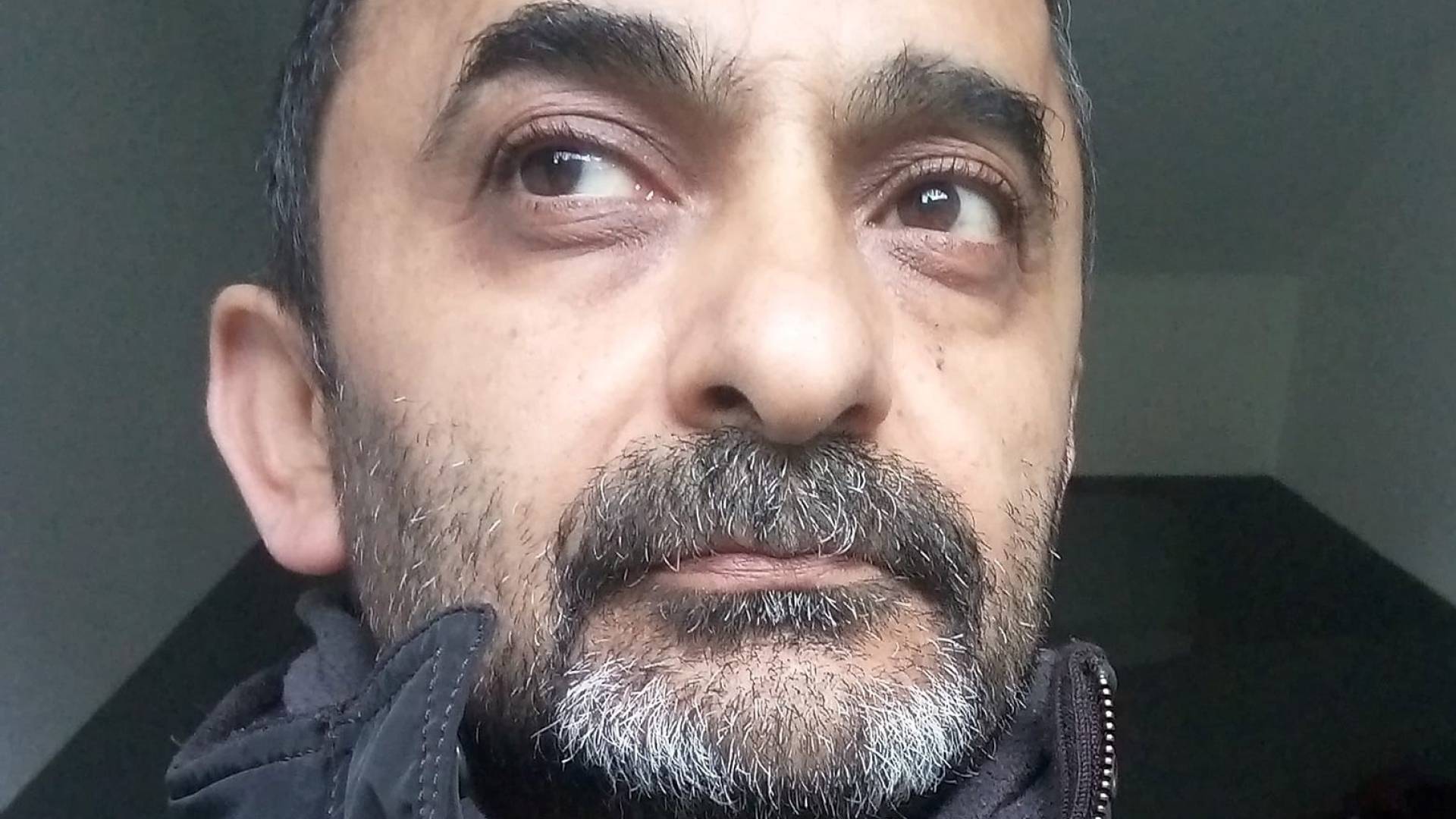
 Türkçe
Türkçe 
